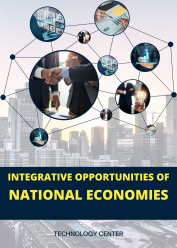Chapter 2. Integration strategies in the context of global challenges
Ключові слова:
Iнтеграційні стратегії, глобальні виклики, резильєнтність, стратегічна автономія, безпекова інтеграція, адаптивні механізми, військові конфлікти, інституційна трансформація, регіоналізація, економічна безпека, технологічний суверенітет, багаторівнева інтеграція, кризове реагування, геоекономічна фрагментація, сценарне прогнозуванняКороткий опис
The study is devoted to the theoretical and methodological justification and development of practical recommendations for the formation of effective integration strategies for national economies in the context of modern global challenges. Theoretical approaches to the analysis of the transformation of integration models in the post-crisis period have been systematised, and the author's concept of multidimensional adaptive integration, which integrates the theoretical constructs of resilience, strategic autonomy and security integration, has been proposed. A methodological toolkit for assessing the adaptive potential of integration associations has been developed and verified, including an Adaptability Index, indicators of institutional flexibility, resource availability, and technical capacity for crisis response. Based on empirical analysis, a fundamental reconfiguration of the structural dynamics of integration processes in 2020–2024 has been identified, manifested in the divergence between the global and regional dimensions of integration, the acceleration of institutional and political integration, and the exponential growth of security integration indicators. The mechanisms of response of leading integration associations to global shocks of various nature were studied, and three dominant models of adaptation were identified: comprehensive transformation, sectoral adaptation, and institutional mimicry. A comparative analysis of the adaptive strategies of the EU, ASEAN and the Eurasian Economic Union was carried out, revealing a divergence of institutional models with functional convergence of mechanisms for responding to global challenges. The existence of significant economic effects of the transformation of integration strategies has been substantiated, manifested in the strengthening of intra-bloc economic interaction, the reconfiguration of investment flows, and the growth of indicators of strategic autonomy and resilience of integration associations. The institutional, economic and political constraints on the implementation of new integration strategies are critically analysed, and the transformation of models of financial support for the adaptation mechanisms of integration associations is investigated. Based on scenario forecasting with a horizon up to 2030, alternative trajectories for the evolution of integration processes are identified and practical recommendations are formulated for optimising integration strategies in the context of the transformation of the global security architecture.


